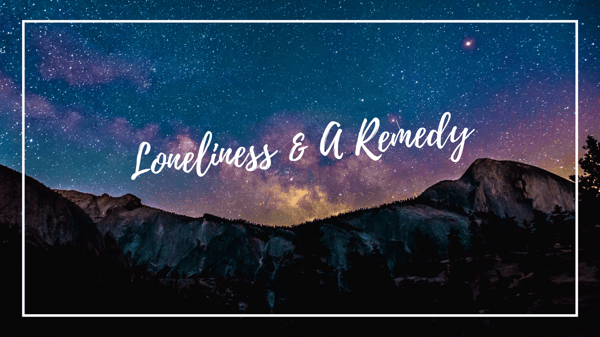
The Problem of Loneliness and Its Solution
On May 1st, 2018, global health service company, Cigna, released the results of a national survey exploring the impact of loneliness in America.
The survey of more than 20,000 U.S. adults ages 18 years and older revealed the following:
- Nearly half of Americans report sometimes or always feeling alone (46 percent) or left out (47 percent).
- One in four Americans (27 percent) rarely or never feel as though there are people who really understand them.
- Two in five Americans sometimes or always feel that their relationships are not meaningful (43 percent) and that they are isolated from others (43 percent).
- One in five people report they rarely or never feel close to people (20 percent) or feel like there are people they can talk to (18 percent).
- Only around half of Americans (53 percent) have meaningful in-person social interactions, such as having an extended conversation with a friend or spending quality time with family, on a daily basis.
- Generation Z (who were, at the time of this study, adults ages 18-22) was found to be the loneliest generation and, incidentally, in also worse health than all older generations.
The rise of technology has delivered to us a world in which we need not be out of contact with one another for more than a fraction of a second, but in this world of instant communication Americans are suffering from unprecedented loneliness and it is making many of us emotionally, mentally and even physically ill. In fact, those who suffer from chronic loneliness are 50% more likely to die from almost any other health issue than those who do not suffer from loneliness.
Research now shows that those who invest in deeper relational connections have health benefits more powerful than diet, exercise and sleep.
Healthcare professionals across the nation have been describing loneliness as a healthcare crisis for well over a decade, since there are now more Americans suffering from chronic loneliness than those who struggle with many other health care concerns including obesity and diabetes.
Over 40% of Americans will at some point in their lives struggle with a chronic form of loneliness and research suggests that the negative impact on these individual’s health is equivalent to smoking 15 cigarettes a day.
The Surgeon General of the United States recently described several factors research has found that contribute to our current problem of loneliness in America:
- We have substituted lower quality connections for higher quality connections with one another. Social media can often be a form of this.
- Work now seeps into every area of our lives often aided by technology and diminishes the time we have for quality interaction with those we love.
- Many Americans believe that the key to success is to be self-sufficient and not rely on others.
- A decline in the experience of self-worth in America has led to a decline in social connection because, as research suggests, it is having a sense of our own value that leads toward us valuing others.
Fascinating…but, I would also suggest that the problem of loneliness is one of the greatest health crises facing our society today because the solution is one of the most profound. According to the Surgeon General, the research all points to one solution:
… Love.
“Love is, in fact, the oldest medicine that we have.”
-Vivek Murthy, 19th Surgeon General of the United States
In 1 John 4:7-8, we find the following words:
Dear friends, let us love one another, for love comes from God. Everyone who loves has been born of God and knows God. Whoever does not love does not know God, because God is love.
No matter what else could be said about what it means to love one another, I fully agree with the following statement by the late, great Fred Rogers said,
“listening is where love begins, listening to ourselves and to our Neighbors.
The quality of our lives is dynamically impacted by the quality of our relationships and the quality of our relationships is greatly determined by the quality of our conversations.
Take the time to purposefully and prayerfully begin being more present to those around you. Love by listening. Allow yourself to experience more undistracted time as you interact with others.
To help you deepen this experience, here are three powerful questions to ask anyone to connect on a deeper level;
It could be your spouse, a parent or child, a friend, neighbor or coworker. I guarantee if you listen well and don’t give any advice, you will begin to experience the type of connectedness and love that has the power to cure our society of one of its greatest ills.
Questions to Ask
- What do you want more or less of in your life these days? (Just prayerfully listen and see if you start to sense God’s heart for this individual.)
- In reference to the first question, and if you are speaking to a Christian, ask: how do you see God at work in that? If he or she is not a Christian, still listen and think about the answer to that question, but instead ask them: what would it mean to you if the answer to question number one were to happen?
3. How can I pray for you to see that happen?
Now, for the best part:
Pray with them. In fact, invite them to pray first, even if they have never done it before, and then pray a prayer of blessing over them, out loud, reiterating what they said and prayed for.
Love by listening well and pray together to seal the deal. You never know, you might just be filled with the Holy Spirit, feel greatly encouraged and have your own burdens lifted in the process as well.
If you missed Sunday's message where I spoke more in depth about Loneliness, click here to watch the podcast.



